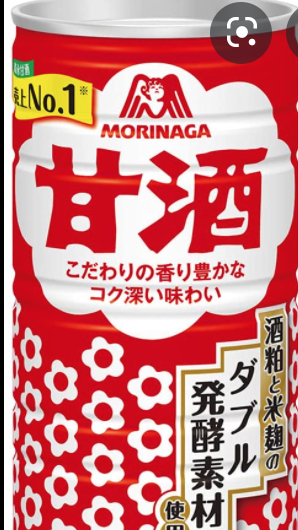
Centenarians have special intestinal bacteria that produce new bactericidal bile acids!
The lifespans of Japanese men and women, as a group, are classified as one of the longest in the world (No. 2, No. 1 is Hong Kong). Japanese women live the longest in the world to around 86 years old. Accordingly, the number of centenarians (people over 100 years old) is increasing year by year now. Needless to say, these people are healthy and mostly free from bacterial infection and chronic inflammation, etc. Why are these people able to stay healthy? In this regard, Dr. Y. Sato and colleagues at Keio University Medical School have recently published some interesting research results (Y. Sato et al. Novel bile acid biosynthetic pathways are enriched in the microbiome of centenarians. Nature (2021) 599, 458-464).
Here, we would like to briefly introduce both the paper and its results as well as a related book published recently. The authors in the paper analyzed the intestinal microbiome based on in vitro cultures of bacteria from stool samples of people from a range of ages including centenarians (160 centenarians, average 106 years old; 112 people between 85 and 89 years old; 47 people between 21 and 55 years old). Centenarians were found to have specific types of bacteria rarely found in people of other age groups (especially enriched types, Proteobacteria (gram negative) and Synergistetes (gram negative); relatively enriched type, Verrucomicrobia). However, there was one type of bacteria which they lacked, Actinobacteria (gram positive) which was found in people of other age groups. Actinobacteria is known to become less active in humans with active immunological levels.
Next, they analyzed the genome of the centenarian’s specific bacteria and found several genes unique to these bacteria. These genes produce proteins that are enzymes involved in the conversion of primary bile acids to secondary bile acids. Bile acids are known to play important functional roles in the emulsification of fatty acids taken into our intestine after meals. This is essential for fatty acids to be taken up into blood through intestinal surface cells.

.png)
The new secondary bile acids found in the centenarians are lithocholic acids (Fig. 2) converted from primary bile acid components like chenodeoxycholate (Fig. 1) by the enzymes found in the centenarians’ new type of bacteria. The authors also found that the new types of secondary bile acids have bactericidal effects based on in vitro and in vivo experiments using mice as a model. Results showed that the new bile acids can kill Clostridium difficile with antibiotic resistance. These effects may play a role in protecting centenarians from bacterial infections. The newly found bile acids may kill intestinal bad germs (like Clostridium perfringens) and enhance intestinal good germs (like Lacto-bacillus) as discussed in the paper. However, the bactericidal effect is only for gram positive bacteria, not for gram negative bacteria.
The new findings above are based on Japanese centenarians. It would be interesting to see results for centenarians in other countries. Other questions also arise including how the new types of bacteria are brought about in the intestine of centenarians. Also of interest is how the life styles of the centenarians may lead to the creation of the bacteria.
It is well known that maintaining a good intestinal bacteria flora is important for health. In this regard a new book has been published recently (Ninety Percent of our Health Condition Depends on Intestinal Bacteria. (In Japanese), T. Matsuo, PHP publishing Co.(2021)) . The author, medical doctor Tsuneo Matsuo, has taken care of many patients with constipation, and also colorectal cancer. Based on his experience as a clinician he proposes several dietary examples good for intestinal bacteria. These might be similar to dietary customs of the centenarian research participants.
Dr. Matsuo observes that dietary fibers are classified into two types: insoluble and soluble. Intestinal bacteria can digest soluble fiber and use it to proliferate. Soluble dietary fibers are broken down by intestinal bacteria into a type of fatty acid with low molecular weight called butyric acid. Butyric acid is used by immune cells in the lining of the intestines to activate the immune system. Two foods known to be rich in soluble fiber are barley (Fig. 3) and kiwi. Dr. Matsuo tells us that there are three important benefits to notice, 1. good intestinal condition, especially for constipation, 2. lowering blood glucose level. 3. decreasing blood cholesterol level. Although barley was once thought to be difficult to eat, recently a new type of barley which is easy to eat has been developed by an Australian group and is commercially available. Dr. Matsuo also recommends the traditional Japanese drink “amazake” (Fig. 4) made from rice mold “Koji” used for Sake. A special enzyme contained in this drink, an acidic protease, is good for the growth of intestinal bacteria. As evidence of amazake’s ability to cure constipation, he gives examples based on his data of constipation patients.


Another interesting topic described in this book is the difference of intestinal bacteria flora between people with more or less exercise. There are more beneficial intestinal germs in the intestines of people who like more frequent exercise. An international authority of Biochemistry, Prof. Y.Kagawa, Jichi Medical School, observes that the number of patients infected by COVID 19 is much lower in African countries, where people are physically more active compared to those in Western countries. They probably get more of the good intestinal bacteria from physical activities, leading to higher immunological activity than people in other areas of the world.
As we confirm here based on the latest research results, the role of intestinal bacteria to keep healthy physical condition is obvious. Therefore, we need to have a good diet and plenty of physical exercise.
